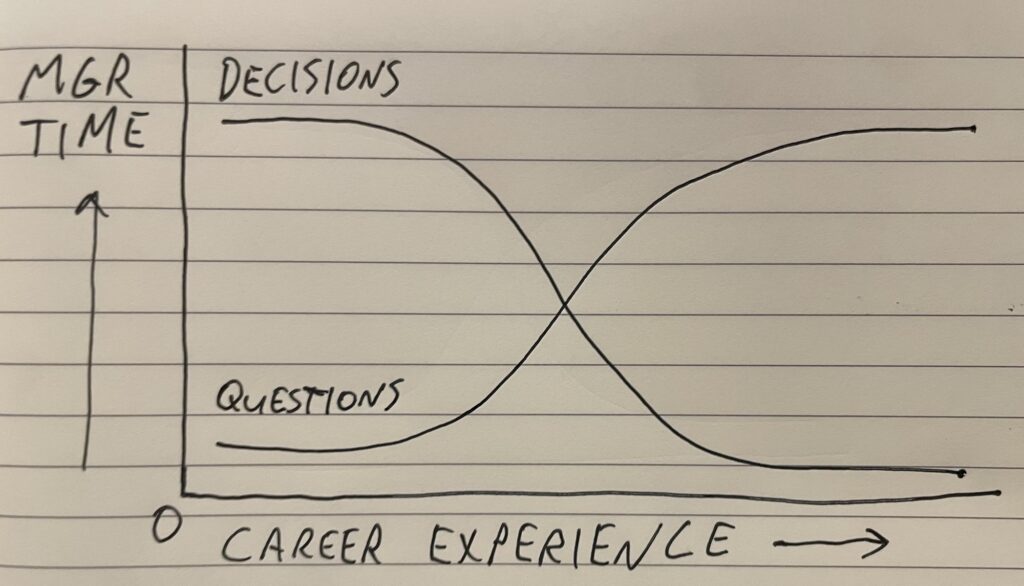I used to tell new employees that there was no such thing as a stupid question in the first few weeks of their role, and then the percentage of questions which were stupid rapidly grew.
The idea is that, by the end of a month, they should not need to ask people many questions. They should be able to figure out on their own. If you keep asking noob questions too long, you lose the respect of your colleagues.
That’s not wrong, but it’s too simple.
I was asked yesterday what patterns I’ve noticed in the employees who have gone on to the most career success. It hit me that the real home run hitters were people who did ask lots of questions. What they didn’t do was ask me to make lots of decisions for them.
There are two types of quieries:
- Asking someone to make a decision
- Asking someone for their opinion, ideas, or input
When you’re new in a role, you should do a lot of the first and not much of the second.
Ask your manager whether you should do X or Y, who is best to run project Z, and what the budget should be for A. You’ll start to learn and see how they think and their logic for decisions.
Don’t spend a lot of time asking them their opinion on your crazy new idea, or other open-ended, speculative questions. You don’t yet have the context to ask good ones. Just get stuff done while you learn.
But to really become a beast, these things need to flip. You need to ask your manager to make fewer and fewer decisions for you, and you need to engage them more and more on speculative discussions and brainstorming back and forth.

The more you can say “I did” instead of “Can you?” or “Should we?”, the more valuable you become to your manager.
When you get to that level of ownership, the value of your curiosity and questions increases. You start to use your manager’s time to ask about changes to the business model, the target market, the pricing, the distribution. You begin to work with them as a peer, a sounding board, and a constructive critic of your ideas, and you of theirs.
Fewer decisions, more questions. That’s the progression. You’ve got to earn trust through results to get there. Make it the goal.